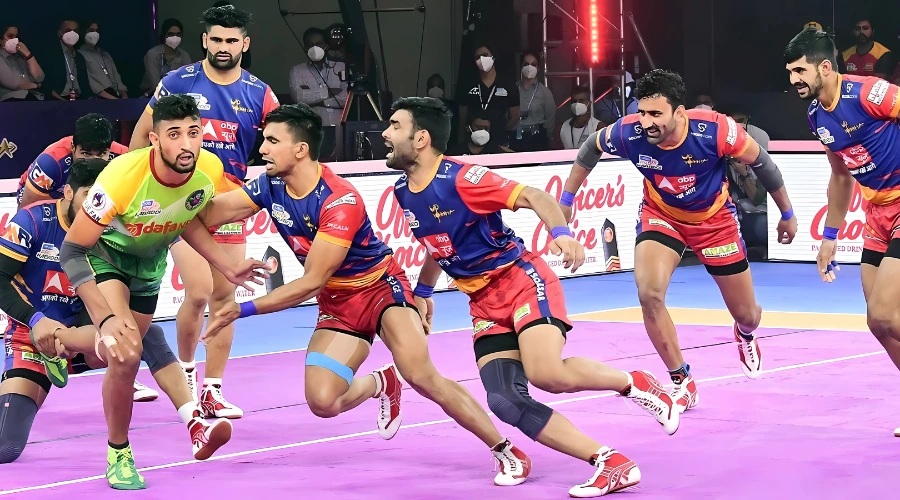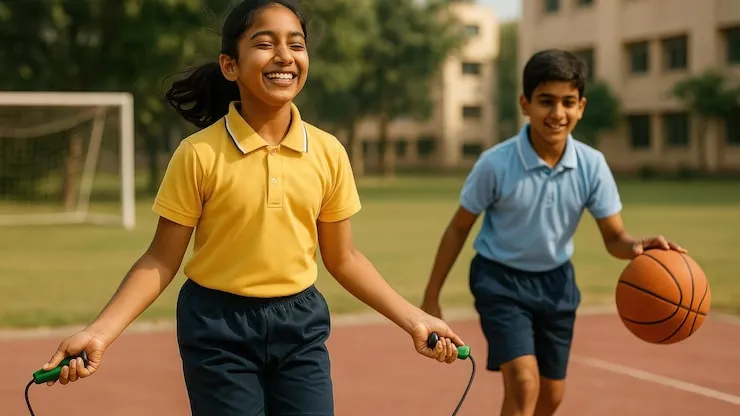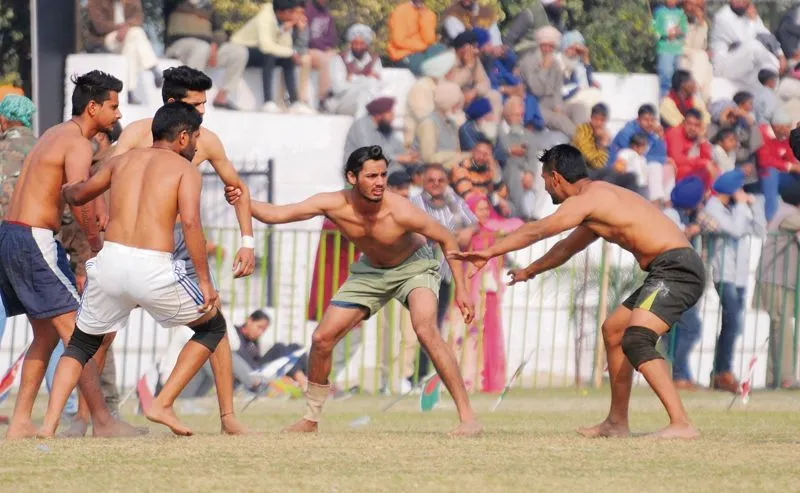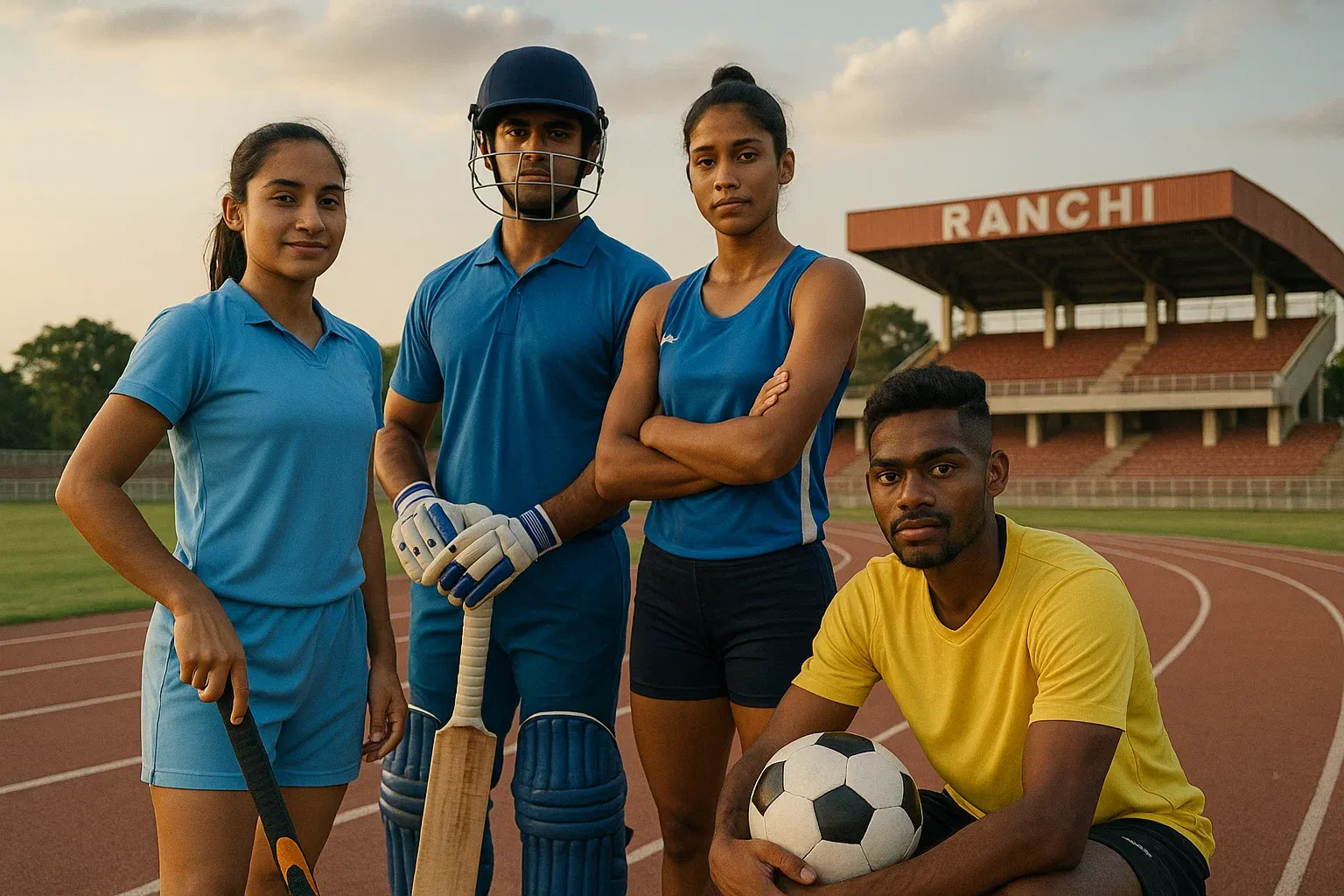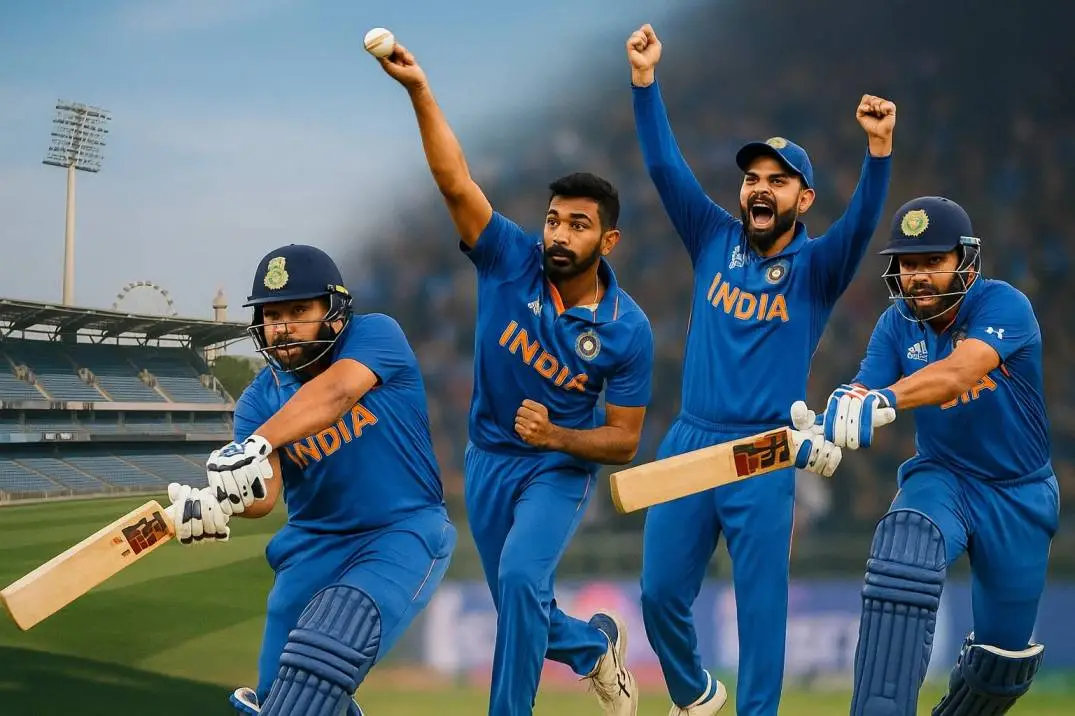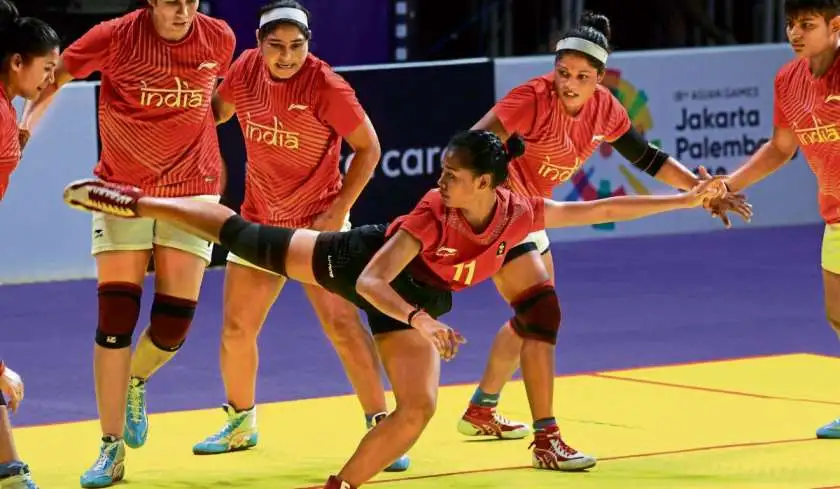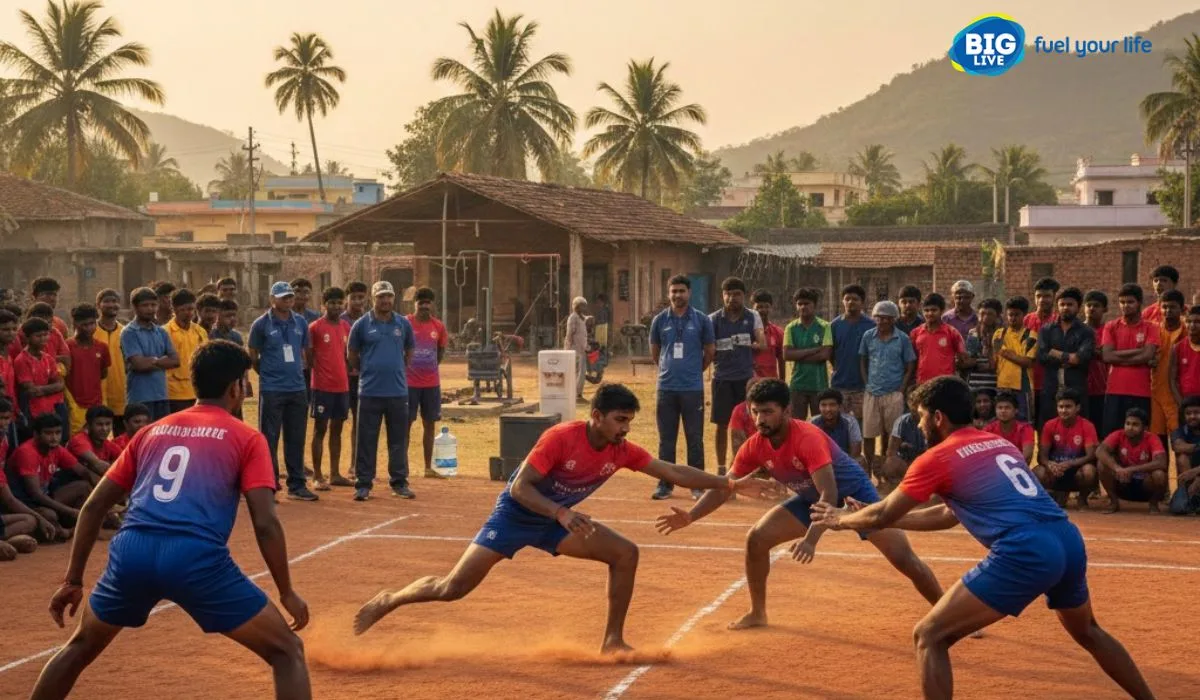Playing kabaddi isn't just about being strong and fast. Your mind is the most powerful tool you have on the mat. I've been coaching kabaddi for over eight years, and I've seen talented players fail because they couldn't control their thoughts. I've also watched average players become champions through proper mental training. Today, I want to share everything I know about getting your mind ready for kabaddi. These tips have helped my players win state championships and even make it to national teams.
Why Your Mind Matters More Than Your Muscles
When I first started playing kabaddi twenty years ago, coaches only talked about physical training. We did push-ups, ran laps, and practiced raids. But something was missing. Players would freeze during important matches. They'd make silly mistakes they never made in practice. That's when I learned the truth: kabaddi is 70% mental and 30% physical. Your body can be perfectly prepared, but if your mind isn't ready, you'll struggle on the mat. Think about it. During a raid, you have just 30 seconds. Your heart races. Defenders surround you. The crowd screams. In those moments, only a trained mind can make smart decisions.
Mental Preparation Tips For Kabaddi Players: Building Mental Strength
Start With Daily Meditation
I tell all my players to meditate for just 10 minutes each day. You don't need fancy apps or special music. Just sit quietly and focus on your breathing.
Here's how I teach beginners:
- Find a quiet spot in your room
- Sit with your back straight
- Close your eyes gently
- Count your breaths from 1 to 10
- Start over when you reach 10
This simple practice builds focus. During matches, you'll stay calm when defenders try to confuse you. Your mind will be clear and sharp.
Practice Positive Self-Talk
The voice in your head never stops talking. During matches, it can be your best friend or worst enemy. I teach my players to control this inner voice.
Replace negative thoughts with positive ones:
- Instead of "I'm going to mess up," say "I'm prepared and ready"
- Instead of "They're too strong," say "I have the skills to win"
- Instead of "I'm nervous," say "I'm excited to show my skills"
Write down three positive statements about yourself. Read them every morning. Say them before every match. Your confidence will grow stronger each day.
Mental Preparation Tips For Kabaddi Players: Pre-Match Preparation
Create Your Perfect Routine
Every great kabaddi player has a pre-match routine. Mine took years to develop, but it works every time. Here's what I do before important matches:
Two hours before the match:
- Listen to energetic music
- Eat a light snack
- Review my game plan
- Do gentle stretching
One hour before:
- Put on my uniform slowly
- Visualize successful raids
- Practice deep breathing
- Talk to my teammates
30 minutes before:
- Warm up my body
- Focus only on the present moment
- Say my positive statements
- Get ready to dominate
Find what works for you. Keep it simple. Stick to it every time.
Master the Art of Visualization
Close your eyes and imagine yourself playing perfectly. See yourself making successful raids. Feel the mat under your feet. Hear the referee's whistle. This isn't daydreaming – it's serious mental training.
I spend 15 minutes before each match visualizing different situations:
- What if I'm the first raider?
- How will I handle a super tackle?
- What if we're losing by two points?
- How will I celebrate our victory?
Your brain can't tell the difference between real practice and vivid imagination. When you visualize success, you're actually training your mind to perform better.
Handling Pressure During Kabaddi Workout Skills Training
Turn Nervous Energy Into Power
Feeling nervous before a big match is normal. Even professional players get butterflies. The trick is learning to use that nervous energy to your advantage. When you feel anxious, your body produces adrenaline. This hormone makes you faster and stronger. Instead of fighting these feelings, welcome them. Tell yourself, "This nervousness means I'm ready to perform at my best."
Try this simple technique:
- Notice when you feel nervous
- Take three deep breaths
- Smile (even if you don't feel like it)
- Say "I'm excited to play my best kabaddi"
- Channel that energy into aggressive play
Stay Present During the Game
Your mind loves to wander. During matches, it might think about yesterday's mistakes or tomorrow's challenges. This mental wandering kills your performance.
Great kabaddi players stay focused on the present moment. They think about:
- Where are the defenders positioned right now?
- What's my best move in this exact situation?
- How can I help my team score this point?
When your mind starts wandering, bring it back to the present. Focus on your breathing. Look at the mat. Feel your feet on the ground. This present-moment awareness will make you a much better player.
Mental Preparation Tips For Kabaddi Players: Developing Focus and Concentration
Train Your Attention Like a Muscle
Focus isn't something you're born with. It's a skill you can develop through practice. I use simple exercises to help my players build stronger concentration.
The Dot Exercise: Draw a small dot on a piece of paper. Stare at it for two minutes without letting your mind wander. When thoughts come up, gently return your attention to the dot. Do this daily, and your match focus will improve dramatically.
The Sound Game: Sit quietly and listen to all the sounds around you. Try to identify five different sounds. This exercise trains your mind to stay aware during the chaos of a kabaddi match.
The Counting Challenge: Count backwards from 100 to 1. If you lose track, start over. This builds the mental discipline you need during long matches.
Use Breathing Techniques for Instant Calm
Your breath is always available to help you stay calm and focused. I teach my players three breathing techniques they can use anytime:
The 4-7-8 Breath:
- Breathe in for 4 counts
- Hold for 7 counts
- Breathe out for 8 counts
- Repeat 4 times
This technique slows your heart rate and calms your nervous system. Use it during timeouts or between points.
Power Breathing:
- Take a deep breath through your nose
- Hold it for 2 seconds
- Breathe out forcefully through your mouth
- Feel the power building in your body
Use this before your raid to feel strong and confident.
Building Confidence Through Specific Exercise For Kabaddi
Mental Rehearsal of Game Situations
I make my players practice difficult situations in their minds. This mental rehearsal builds confidence for real matches.
Here are scenarios I have them visualize:
The Comeback Situation: Imagine your team is losing 25-30 with 5 minutes left. See yourself making the crucial raid that starts the comeback. Feel the excitement as your team takes the lead.
The Pressure Raid: Picture yourself as the last raider. Your team needs one touch to win. Visualize yourself staying calm, finding the right moment, and making the winning touch.
The Super Tackle Defense: See yourself timing the perfect ankle hold. Feel the raider hitting the ground. Hear your teammates cheering.
Practice these mental scenarios weekly. When they happen in real matches, you'll be ready.
Develop Your Kabaddi Identity
Who are you as a kabaddi player? Are you the aggressive raider who never backs down? The smart defender who reads every move? The team leader who stays calm under pressure?
I help my players create their kabaddi identity. Here's how:
- Write down your three biggest strengths
- Choose one word that describes your playing style
- Create a mental image of yourself as this type of player
- Act like this player in every practice and match
When you have a clear identity, decision-making becomes easier. You know what kind of player you are and how that player would react in any situation.
Mental Preparation Tips For Kabaddi Players: Dealing With Setbacks
Learn From Losses Without Losing Confidence
Every kabaddi player faces defeats. I've lost matches that still hurt to think about. But losses taught me more than victories ever did.
After a tough loss, follow this process:
First 24 hours: Feel disappointed. It's natural and healthy. Don't pretend you're not upset.
Days 2-3: Watch the match video if available. Write down three things you did well and three things to improve.
Day 4 and beyond: Focus only on improvement. Use the lessons from the loss to train harder and smarter.
Remember: every great kabaddi player has lost important matches. What makes them great is how they respond to those losses.
Bounce Back From Bad Raids
Sometimes you'll make a bad raid. You might get tackled easily or fail to score when the opportunity was perfect. These moments can destroy your confidence if you let them.
Here's my bounce-back strategy:
- Accept what happened (don't make excuses)
- Take a deep breath and reset your mind
- Remember your last successful raid
- Focus on the next opportunity
- Trust your training and abilities
The best raiders have short memories for mistakes and long memories for successes.
Kabaddi Workout Plan: Mental Training Schedule
Daily Mental Training Routine
Just like your kabaddi workout plan includes physical exercises, you need a plan for mental training. Here's the routine I give all my players:
Morning (10 minutes):
- 5 minutes of meditation
- Read your positive statements
- Visualize one successful play
Before Practice (5 minutes):
- Deep breathing exercises
- Set one specific goal for practice
- Get into your confident mindset
After Practice (10 minutes):
- Review what went well
- Identify one area for improvement
- Practice gratitude for your abilities
Before Bed (5 minutes):
- Visualize tomorrow's success
- Release any stress from the day
- Set positive intentions for sleep
This 30-minute daily investment will transform your mental game.
Weekly Mental Challenges
Every week, I give my players a new mental challenge. These challenges keep their minds sharp and growing:
Week 1: Practice staying calm when teammates make mistakes Week 2: Focus on encouraging others, even when frustrated Week 3: Work on bouncing back quickly from personal errors Week 4: Practice maintaining energy when your team is losing
These challenges prepare players for real match situations.
Advanced Mental Preparation Tips For Kabaddi Players
Master Your Pre-Raid Ritual
Every successful raider has a personal ritual they perform before entering the opponent's court. This ritual puts them in the perfect mental state for their raid.
My personal pre-raid ritual includes:
- Three deep breaths while looking at the defenders
- A quick visualization of my planned move
- Touching the ground for connection and focus
- One positive word to myself ("Strong" or "Smart" or "Fast")
Create your own ritual. Keep it under 10 seconds. Practice it until it becomes automatic. This ritual will become your mental anchor during pressure situations.
Use Mental Cues During Play
During matches, your mind needs simple instructions. I teach my players to use one-word mental cues that instantly put them in the right mindset:
For Raiders:
- "Explosive" - for quick, powerful movements
- "Patient" - for waiting for the right moment
- "Smooth" - for flowing movements that confuse defenders
For Defenders:
- "Ready" - for staying alert and prepared
- "Together" - for coordinated team defense
- "Strong" - for powerful tackles and holds
Choose cues that work for your playing style. Practice using them during training until they become natural.
Building Team Mental Strength
Support Your Teammates' Mental Game
Kabaddi is a team sport. Your mental state affects your teammates, and theirs affects you. I teach my players to be mental coaches for each other.
Here's how to support your teammates mentally:
During Practice:
- Celebrate their good plays enthusiastically
- Offer encouragement after mistakes
- Share mental training techniques that work for you
During Matches:
- Give positive body language on the bench
- Use encouraging words during timeouts
- Stay focused even when not playing
After Tough Losses:
- Listen without trying to fix everything
- Remind them of their strengths
- Plan together for improvement
A mentally strong team is much more powerful than individually strong players.
Handle Team Pressure Situations
Some moments in kabaddi put pressure on the entire team. The score is tied with seconds left. Your star raider is injured. The referee makes a questionable call. These situations test your team's mental strength.
I prepare my teams for pressure situations through practice:
Scenario Training: We practice game situations where everything goes wrong. Players learn to stay calm and make good decisions even in chaos.
Communication Drills: We practice talking to each other during stressful moments. Clear communication prevents mental breakdowns.
Leadership Rotation: Every player practices being the leader during difficult situations. This way, someone always steps up when needed.
Mental Preparation Tips For Kabaddi Players: Recovery and Mental Rest
The Importance of Mental Recovery
Your brain needs rest just like your muscles do. I see many players overtrain mentally. They think about kabaddi constantly. They watch match videos for hours. They stress about every small mistake.
This mental overtraining leads to:
- Decreased focus during matches
- Higher anxiety levels
- Reduced enjoyment of the game
- Poor decision-making under pressure
Schedule mental rest into your kabaddi workout plan. Take complete breaks from thinking about kabaddi. Read books, watch movies, spend time with family. Your mental performance will actually improve with proper rest.
Sleep and Mental Performance
Sleep is when your brain processes everything you learned during practice. Poor sleep destroys your mental game faster than anything else.
Here's my sleep routine for peak mental performance:
2 hours before bed:
- No intense kabaddi videos or strategy discussions
- Dim the lights in your room
- Start relaxing activities
1 hour before bed:
- Put away all phones and screens
- Do gentle stretching or reading
- Practice gratitude for the day
In bed:
- Keep the room cool and dark
- Use deep breathing to relax
- Visualize peaceful, non-kabaddi scenes
Aim for 8-9 hours of quality sleep. Your mental game will be sharper, your reactions faster, and your decision-making clearer.
Putting It All Together: Your Mental Game Plan
Creating Your Personal Mental Training Program
Now that you know all these techniques, you need to create your personal mental training program. Don't try to do everything at once. Start with three techniques that appeal to you most.
Here's how I help players build their program:
Month 1: Focus on basic meditation and positive self-talk Month 2: Add visualization and pre-match routines
Month 3: Include advanced techniques like mental cues and pressure training Month 4: Develop your complete mental game system
Track your progress in a journal. Write down which techniques help most. Notice how your match performance improves as your mental training develops.
Measuring Your Mental Game Progress
Mental training results aren't always obvious like physical improvements. But you can track your progress in several ways:
During Matches:
- How quickly do you recover from mistakes?
- Do you stay focused during long rallies?
- Can you perform under pressure?
During Practice:
- Are you more consistent with your techniques?
- Do you bounce back faster from bad drills?
- Are you helping teammates stay positive?
In Daily Life:
- Do you feel more confident overall?
- Are you handling stress better?
- Do you sleep better at night?
Keep notes about these changes. Seeing your mental progress will motivate you to continue training your mind.
Final Thoughts: Your Mental Game Journey
Building a strong mental game takes time and consistent practice. I've been working on my mental skills for two decades, and I'm still learning new techniques. The key is to start today and stay consistent. Remember, every professional kabaddi player you admire has invested heavily in mental training. They understand that mental preparation tips for kabaddi players aren't optional extras – they're essential skills for success.
Your physical training teaches your body what to do. Your mental training teaches your mind how to perform when it matters most. Combined with your specific exercise for kabaddi and kabaddi workout skills, a strong mental game will take you to levels you never thought possible. Start with one technique from this guide. Practice it daily for a week. Then add another technique. Build your mental strength gradually and consistently. Your future kabaddi success depends on the mental training you do today. The mat is waiting. Your opponents are training their minds. Are you ready to train yours?



